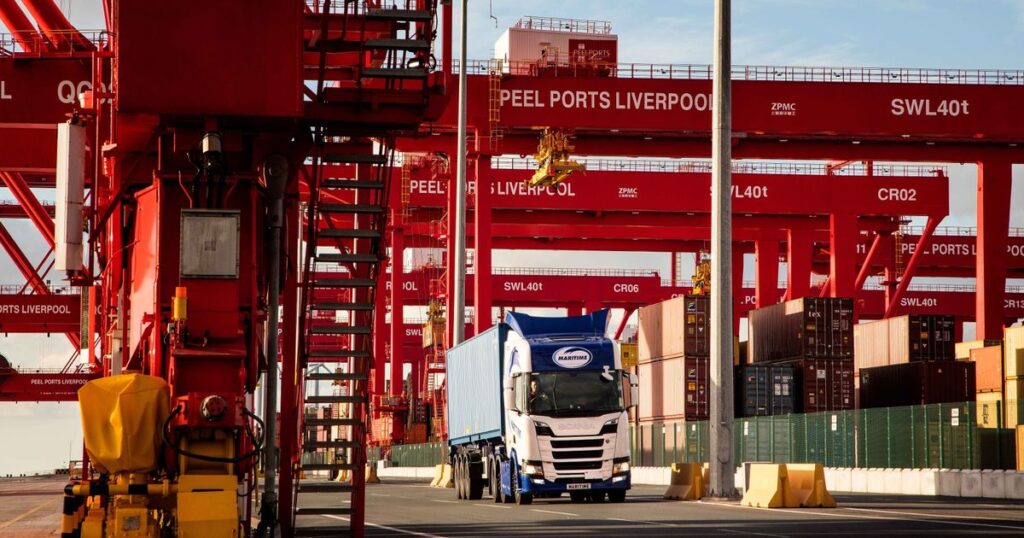Maritime Transport has inaugurated a state-of-the-art container storage terminal at the Port of Liverpool. This new facility, part of a comprehensive multi-million-pound project, marks a significant step in the company’s ongoing expansion.
Designed to operate around the clock, the terminal boasts a capacity of up to 2,000 TEU, underscoring the strategic importance of the Port of Liverpool as a vital hub for both national and international trade.
Enhanced Capacity and Facilities
The new terminal, which can function 24/7, is equipped to handle up to 2,000 TEU. Maritime Transport’s executive chairman, John Williams, highlights that this facility will allow the company to significantly expand its operations in Liverpool.
In addition to the terminal, the company is enlarging its existing transport depot within the port from four acres to 11.4 acres. The expansion also includes the construction of a modern two-storey building designed to accommodate drivers and visitors with advanced amenities.
Strategic Expansion Plans
Maritime Transport’s expansion is a testament to its commitment to strengthening its service capabilities. The company’s new terminal at Liverpool joins a robust network of container storage sites, which includes locations in Ipswich, Northampton, and Southampton.
This strategic move aims to meet the rising demand for storage and operational facilities in the region. The development is poised to support the growing volume of cargo activity, bolstered by the recent introduction of MSC’s Britannia service.
Leadership and Vision
Tom Williams, deputy CEO at Maritime Transport, expressed his enthusiasm for the new terminal: “We are delighted to open our newest container storage site at the Port of Liverpool.”
Williams emphasised that the expansion provides modern facilities for drivers and operational teams, crucial for supporting the increasing demands and activities at the port.
With a turnover exceeding £400 million, a workforce of over 3,000, and a fleet that includes more than 1,600 trucks and 50 container handlers, Maritime Transport stands as one of the UK’s leading intermodal logistics firms.
Partnership with Peel Ports Group
David Huck, COO at Peel Ports Group, lauded the completion of Maritime’s purpose-built space at the Port of Liverpool: “We’re very pleased to see the completion of Maritime’s purpose-built space at the Port of Liverpool.”
He noted that the new facility represents a positive development for the region, creating additional opportunities for cargo owners and retailers amid current economic challenges.
National and International Significance
The investment underscores the Port of Liverpool’s strategic importance as a hub for national and international trade. Maritime Transport’s enhanced capabilities at the port are expected to bolster the UK’s supply chain resilience.
The company’s vision aligns with the broader objectives of supporting trade and economic growth, both locally and internationally.
Collaborations with entities like Peel Ports Group are central to achieving sustained growth and operational excellence in the logistics sector.
Future Prospects
Looking ahead, Maritime Transport is well-positioned to capitalize on its expanded infrastructure. The company’s investment is a proactive response to the evolving demands of the logistics landscape.
As the industry continues to grow and adapt, facilities like the new container storage terminal at the Port of Liverpool will play a crucial role in supporting efficient and reliable trade operations.
Maritime Transport’s new terminal at the Port of Liverpool is a significant milestone in its expansion journey. The facility not only enhances storage capacity but also marks a strategic investment in the region’s economic future.
By reinforcing its operational capabilities, Maritime Transport is set to contribute significantly to the resilience and growth of the UK’s supply chain.

